10 things to do after deciding to learn French
Updated: June 11, 2023 by Mylene in Guides and TipsArray ▪

Once you made up your mind to learn French, then you have made the most important step: decision-making. There are so many resources and different ways to learn, don’t get overwhelmed!
In this article, you’ll find the next 10 steps to follow once you’ve decided to learn French:
- Find a book in French
- Set up a working method
- Learn pronunciation
- Install a routine
- Repeat
- Say the words out loud
- Listen to audios
- Choose a topic you like
- Chat in French
- Write in French
1. Find a book in French
The first step is to look for a French textbook. There are a couple of options, like renting a book from your library, buying a physical book, or getting a digital one. Be sure to pick a bilingual book so that you can easily understand the basic concepts in French. Generally, this first manual should contain:
- a text in French with the same text translated into your mother tongue
- vocabulary explanations
- grammar explanations
- exercises with corrections

2. Set up a working method
It’s important to set up a methodology when you start learning a new language. To help you conceive your own methodology, here’s a sample working method that I have put in place for my students learning French:
- read the text in French and then read it in your language
- read grammar explanations
- read the text in French
- learn new vocabulary as you go
- do the exercises to control the acquisitions
- revise by translating the sentences into French
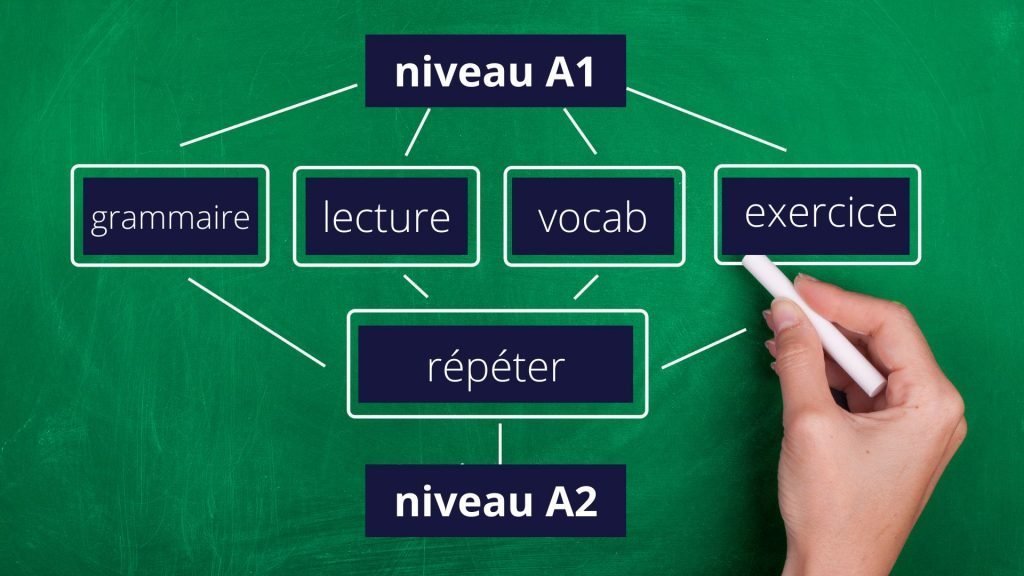
3. Learn French pronunciation
Learn French pronunciation from the start and you will be able to speak without making mistakes, or at least, with much fewer mistakes. Pronunciation must be learned from the beginning in order to build good habits. Pronouncing French correctly is within everyone’s reach. Master Your French offers an online course for learning pronunciation. You can learn to pronounce the 800 most used words in French.
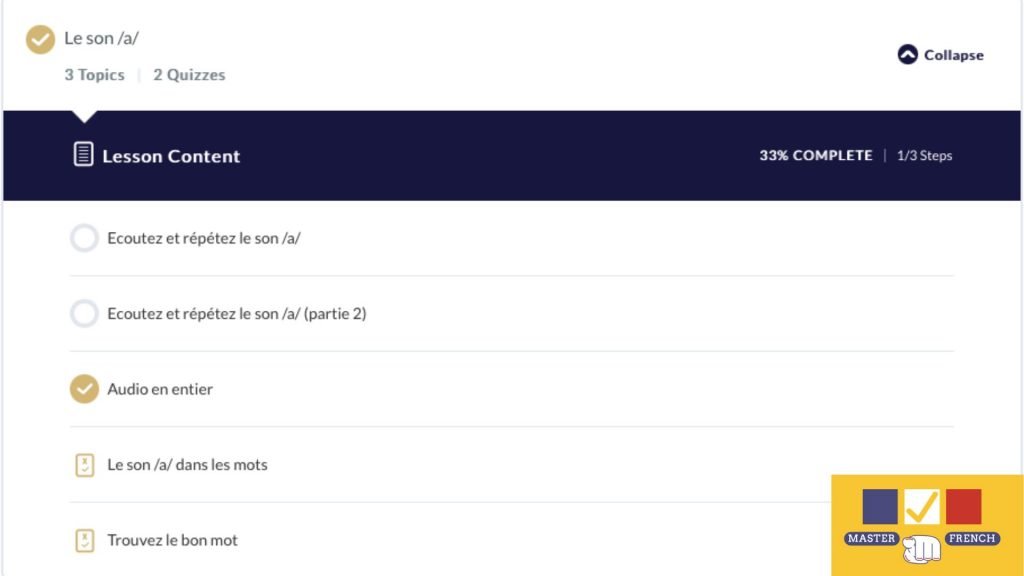
4. Install a routine
This could be the first point in the list of things to do once you decided to learn French or any other language. Indeed, occasional learning will not be useful. You really have to create a routine and stick to it. Plan to study French every day. The ideal practice is to find a quiet time in your day. This can be in the morning before breakfast when the house is asleep, or in the evening after dinner. If you do the same thing 30 days in a row, then we can say that the routine is installed.
This post gives you insightful advice on how to learn online, whether you’re taking a French class or another program.

5. Repeat
If you learned a lesson on Monday, you can review that same lesson again on Tuesday. Repetition is the key to success! It has been proven that if you engage in learning you will be better able to maintain your engagement and learn diligently.
In this Twitter chat from the Duolingo team, you’ll find that forcing learners to make a commitment early on helped them work more consistently. In fact:
- Learners must choose to work 3 days in a row, 7 days in a row, or even 3 months in a row.
- This has no bearing on the content of the program.
Students who take the commitment work more consistently and therefore more effectively after choosing one of these options

6. Say words out loud
Speaking out loud has two benefits: the first is pronunciation practice. You will also ask yourself questions to know how a word is pronounced. That’s great! It is by asking questions that we progress. The second advantage is that the word will fit better into your memory. Indeed you will spend more time on a word and therefore you will remember it better. In the pronunciation course, I offer at least 1000 recorded sentences. The goal is to listen to these phrases and read them aloud to repeat the rhythm and emphasis.

7. Listen to audio
Choose an audio track adapted to your level: a podcast, a YouTube video, or recordings intended for French learners. In any oral comprehension practice course, you can listen to audio, and read the text to find out if you understood correctly. And then listen again to the text. You should then write down the new vocabulary and practice the pronunciation.
Find out more about practicing French listening in this course where you have quizzes to be sure that you have understood correctly.
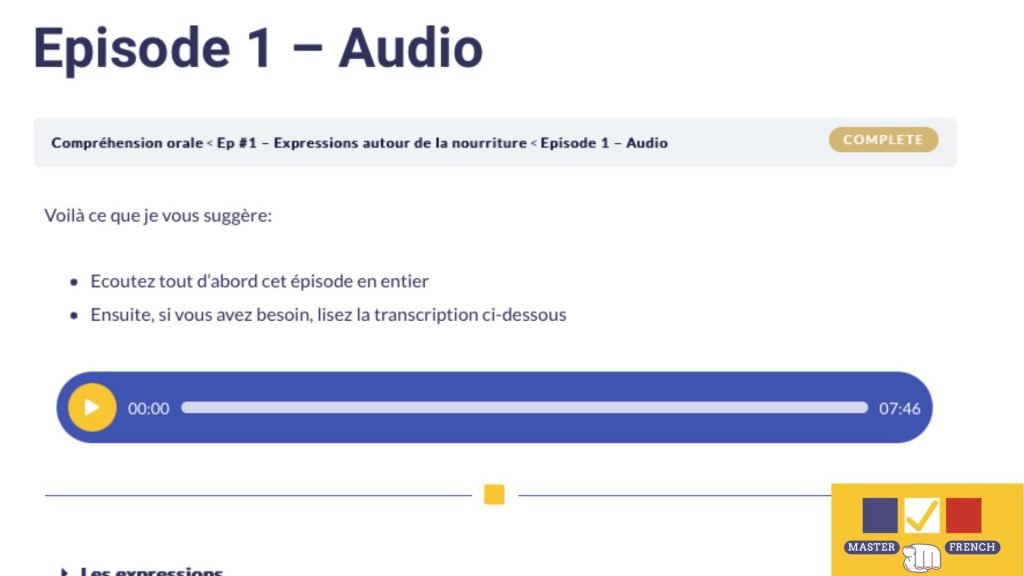
8. Choose a topic you like
You have so far studied French in books or in the pronunciation course. You must now develop your vocabulary and your level of listening comprehension. Choose a learner-friendly podcast or YouTube channel and listen to that recording over and over again.
If you like the art and history of France, I recommend a podcast that I developed this year, you can listen to short 6-minute stories about Marie-Antoinette or the 3 musketeers thanks to Recapitulative.
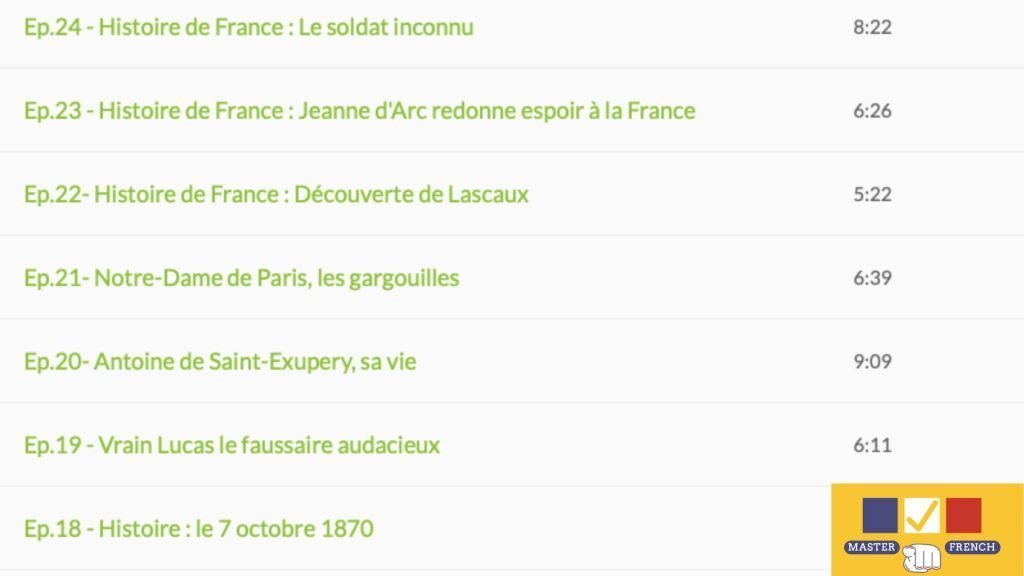
9. Discuss in French
It is now time to start discussing in French. If you have level A1, let’s go! There are plenty of chat groups online! I prefer online groups because you can better focus on the language than if you meet a group of Francophiles in the café of your own city. Join a book club for beginners.
I host a book club for beginners every week. I speak slowly and mostly write down what I say so everyone understands. The group is small, 6 people maximum, for better participation.

10. Write in French
You listen to French, you pronounce it and you read it and you participate in a conversation group. You must also start writing in French. The ideal is to be able to write with a correction. In my reading groups, I propose to correct the answers to the questions. This has a double benefit: testing your reading comprehension and practicing what you have learned. You can choose between the beginner group and the group for the intermediate level.
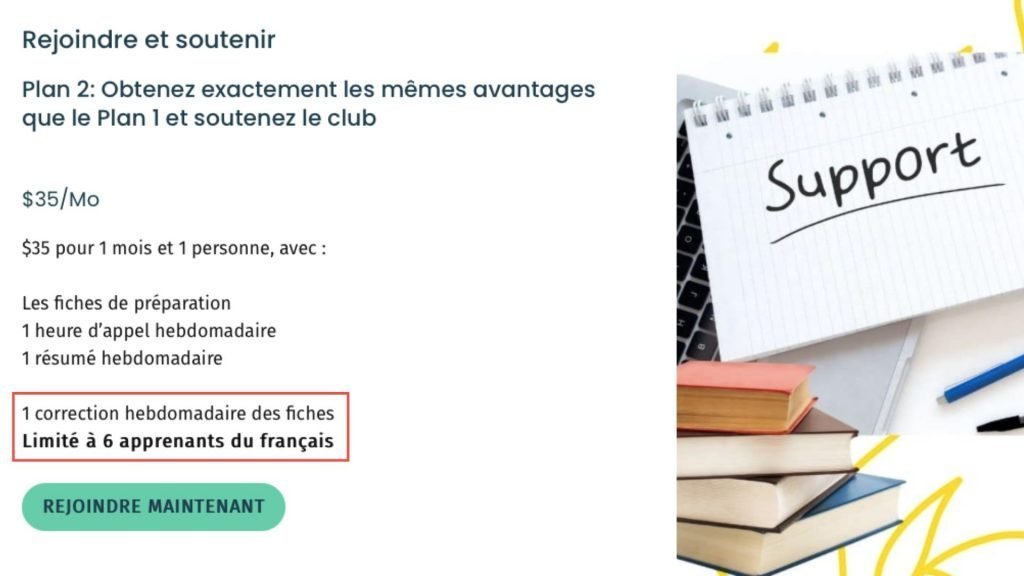
Now it’s about your next step
If you want to stay informed of news, I invite you to subscribe to the newsletter or follow me on Twitter.
This post is also available in Français.

